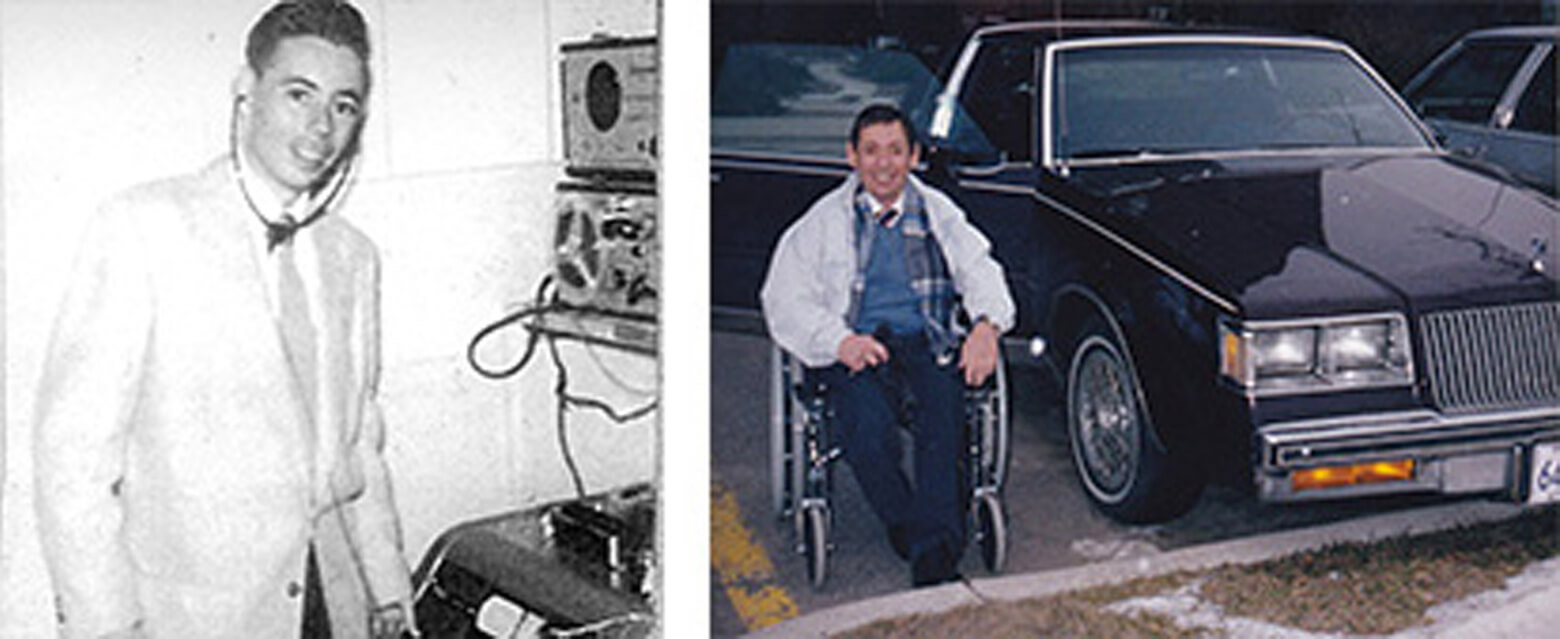Our Mission
Our mission is to objectively assess each individual’s medical fitness to drive and provide training aimed at fostering independent and confident motoring.
Who Can Benefit?
Drivers who have:
- Medical conditions affecting physical ability to drive a car (i.e. stroke, Cerebral Palsy, Gaucher’s Disease, multiple sclerosis, Parkinson’s disease, amputation, arthritis)
- Medical conditions affecting cognitive ability (i.e. Alzheimer’s Disease, other types of dementia, mild cognitive impairment)
- Visual field loss and other types of visual changes
- Stress/anxiety issues specifically related to driving
- Been asked to undergo a driving assessment by their physician or by the Ministry of Transportation of Ontario (MTO)
- A medically suspended licence
- Voiced concerns from family, friends or caregivers regarding their driving abilities
Driver Forms
Insurance Referral Form Medical Referral Form
Contact and Information Form
If a loved one or caregiver are concerned about your driving or if you are the caregiver or loved one and wish to obtain more information or set up an appointment use this form.
Contact and Information Form
With Special Thanks
Brooke Duval, a well-known broadcaster and advocate of accessible public facilities, generously bequeathed funds to enable us to continue his work. The funds are being used to develop a mobile application enabling drivers to locate and navigate to gas stations that provide refuelling assistance. The transition of gas stations to self-service has made refuelling difficult if not impossible for many drivers with disabilities, and has had a significant negative impact on their mobility and driving freedom. We are very grateful to Brooke for his kind donation and hope the application will honour his life-long advocacy.
Who was Brooke Duval?

Born in 1931, Brooke Duval suffered from a rare, genetic bone-wasting disease which kept him in constant pain, impaired his mobility, and inspired him to become an advocate for accessible public facilities. In his will, he left funds to the Bloorview Macmillan Centre for driver education. Eventually that function was transferred to St. Elizabeth’s. When provincial rules for driver education changed, Brooke’s family agreed that using his bequest to support this (please insert name) app would perfectly fit Brooke’s wishes and his interest in improving life for others.
Despite his disability, Brooke fought to enjoy life at every turn, worked as a broadcaster for 25 years, became adept at computers when they were still a novelty, loved bridge, books and music, and had a great sense of humour, to the delight of those who became objects of his gentle teasing.
Doctors at Sick Kids’ Hospital diagnosed Brooke with Gaucher’s disease when he was five years old. It was the Depression and a difficult time for his parents, who had no health insurance, two other young children at home and two more born while Brooke was young. He suffered many broken limbs, spent much of his childhood in hospital, and for several years attended Wellesley School for Crippled Children in Toronto. At times he received blood transfusions directly from his mother, who lay right across the table from him.
During many of those years lying in hospital beds, radio was a solace and a way to pass the time. By the time he was 21, the family had moved to Barrie, where CKBB radio took him on as a trainee broadcaster. Brooke’s father delivered him to the station, where the owner Ralph Snelgrove sometimes carried him upstairs to the studio. Brooke had the voice for radio: his career was launched.
Eventually he became an on-air announcer for stations in Oshawa, Montreal, Kitchener, Timmins, and then Pembroke Ontario, where he became the station manager and an announcer for CHOV TV. By this time he had met and married Pat, with whom he had three children.
Throughout this time there were many medical setbacks, including fractures, a hip replacement, and hemolytic anemia caused by improper blood matching during childhood, when the Rh factor was not yet understood. By 1976 his disabilities forced him to retire at the age of 45.
In later years Brooke moved back to Barrie and used a wheel chair to get about, but was in nearly constant pain despite drug therapy. He could still drive, and became skilled at folding his wheelchair and slinging it into the space behind the front seat of his Buick Regal coupe.
Wheelchair friendly curbs and doors were still not common at that time. Brooke sometimes spoke to the owners of restaurants, retailers, and other buildings not yet set up to welcome customers like him. He served on the Resource & Development Committee of the Simcoe County Association for the PhysicalIy Disabled, and began setting up a database of accessible buildings in Simcoe County. One day a bus was blocking the ramp between the parking lot and the entrance to the Recreation Centre where he liked to swim. It was a cold, February day so Brooke tried going over the curb rather than wait for the bus to move, but tipped, fell from the wheelchair, and was injured once again. His attempt to sue, mainly for the benefit of others like him, never reached court. Brooke died two years later, weighing about 95 pounds, at the age of 60.